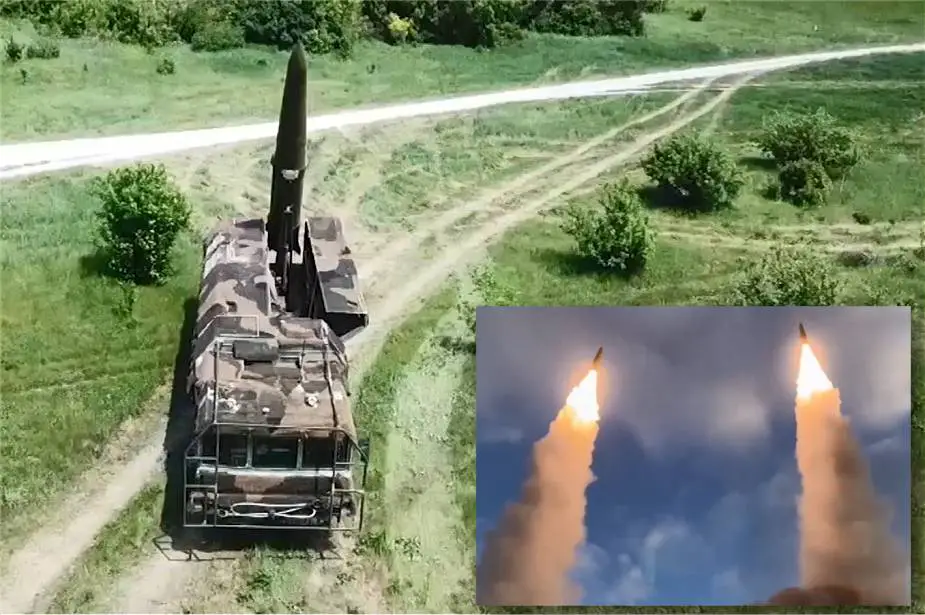According to Al Mayadeen, Belarus is set to receive 9K720 Iskander-M nuclear-capable guided missiles and S-400 Triumf air defense missiles, the Belarusian Ministry of Defense said on October 7: "The defense minister (Viktor Khrenin) has announced the incoming delivery of new equipment, which includes the [Russian-made] Iskander guided missile systems and the S-400 air defense systems over the next few months", the defense ministry said on Telegram. "The demonstration of the unmanned combat systems will take place in October," Minsk added.
Follow Army Recognition on Google News at this link

Russian Iskander-M tactical missile (Picture source: screenshot of Russian MoD video)
The Iskander is a mobile short-range ballistic missile system that entered into service with the Russian army in 2010 to replace the old SS-21 Tochka-U tactical ballistic missile system. An Iskander battery includes a command and staff vehicle, life support vehicle, transporter loader vehicle (TLV), mobile data processing center, maintenance vehicle and Transporter Erector Launcher (TEL). There are four versions of the system, the Iskander, Iskander-M, Iskander-E, and the Iskander-K.
The Iskander-M and Iskander-K are deployed by the Russian armed forces to conduct combat operations in Ukraine. The Iskander-M carries two 9M723 quasi-ballistic missiles able to reach a land target at a range of up to 400 km. The missile It can carry conventional and nuclear warheads up to 700 kg and employs a maneuverable re-entry vehicle (MaRV) and decoys to defeat theater missile defense systems.
On top of these missiles, Russian President Vladimir Putin informed his Belarusian counterpart, Alexander Lukashenko, that he was ready to modernize Belarus's fleet of Sukhoi Su-25 ‘’Frogfoot’’ attack aircraft.
Belarus complains that NATO has ramped up its presence by setting up battle groups in Bulgaria, Estonia, Hungary, Latvia, Lithuania, Poland, Romania, and Slovakia. However, U.S. Department of State spokesperson Vedant Patel said on October 6 that his country was not planning on deploying nuclear arms on the territories of NATO member states that became part of the alliance after 1997.














